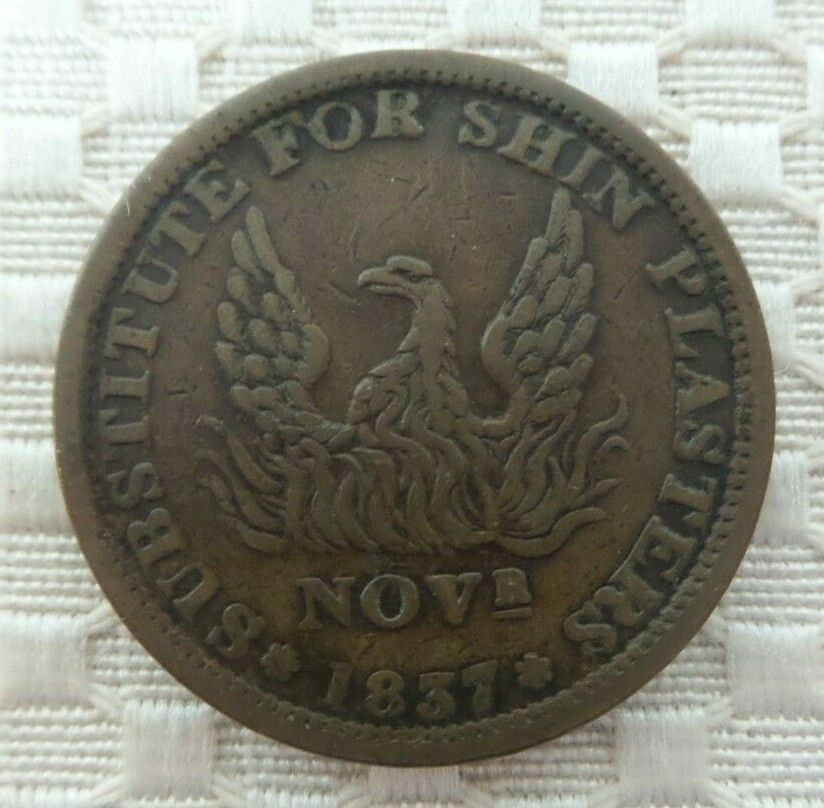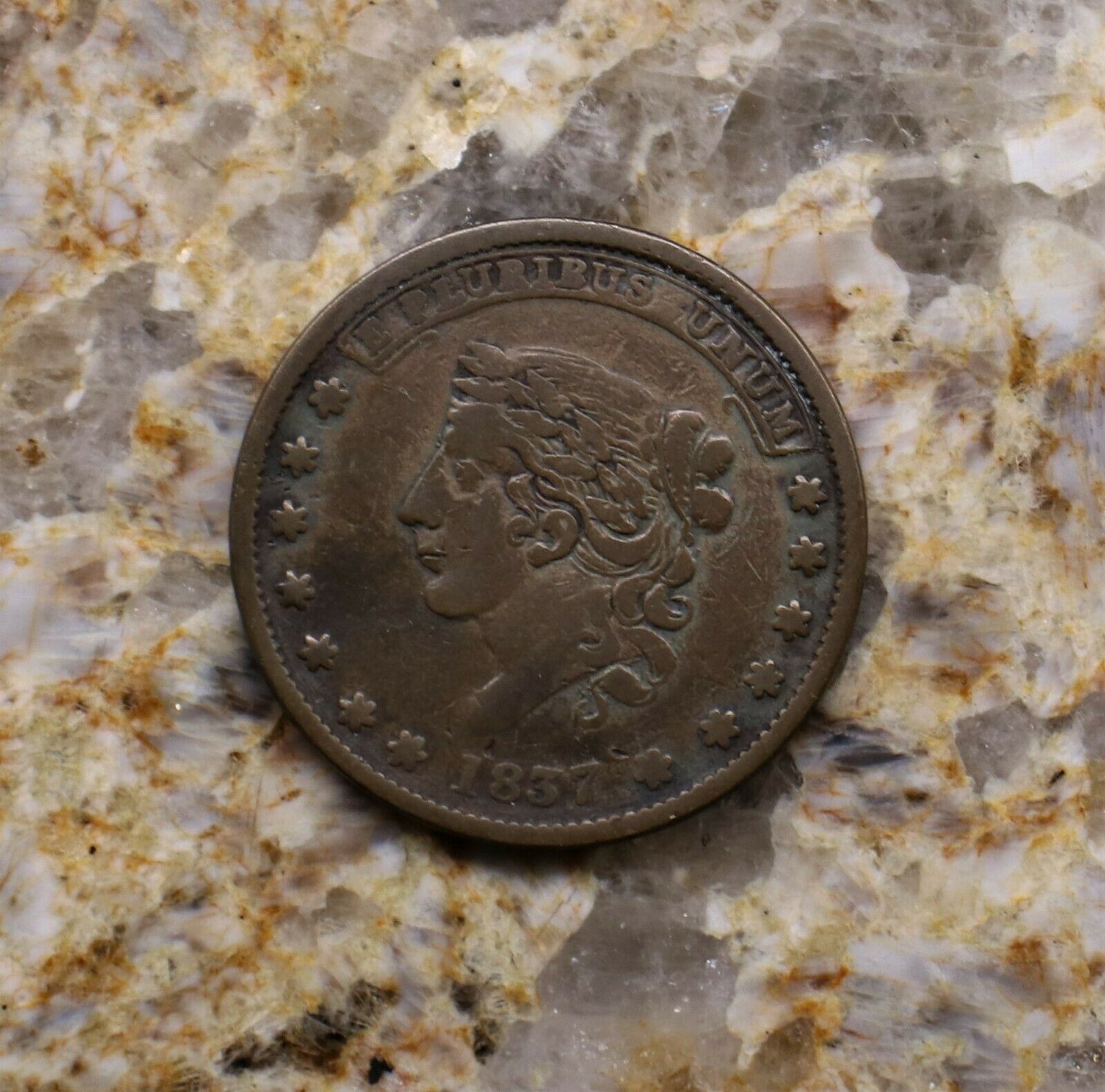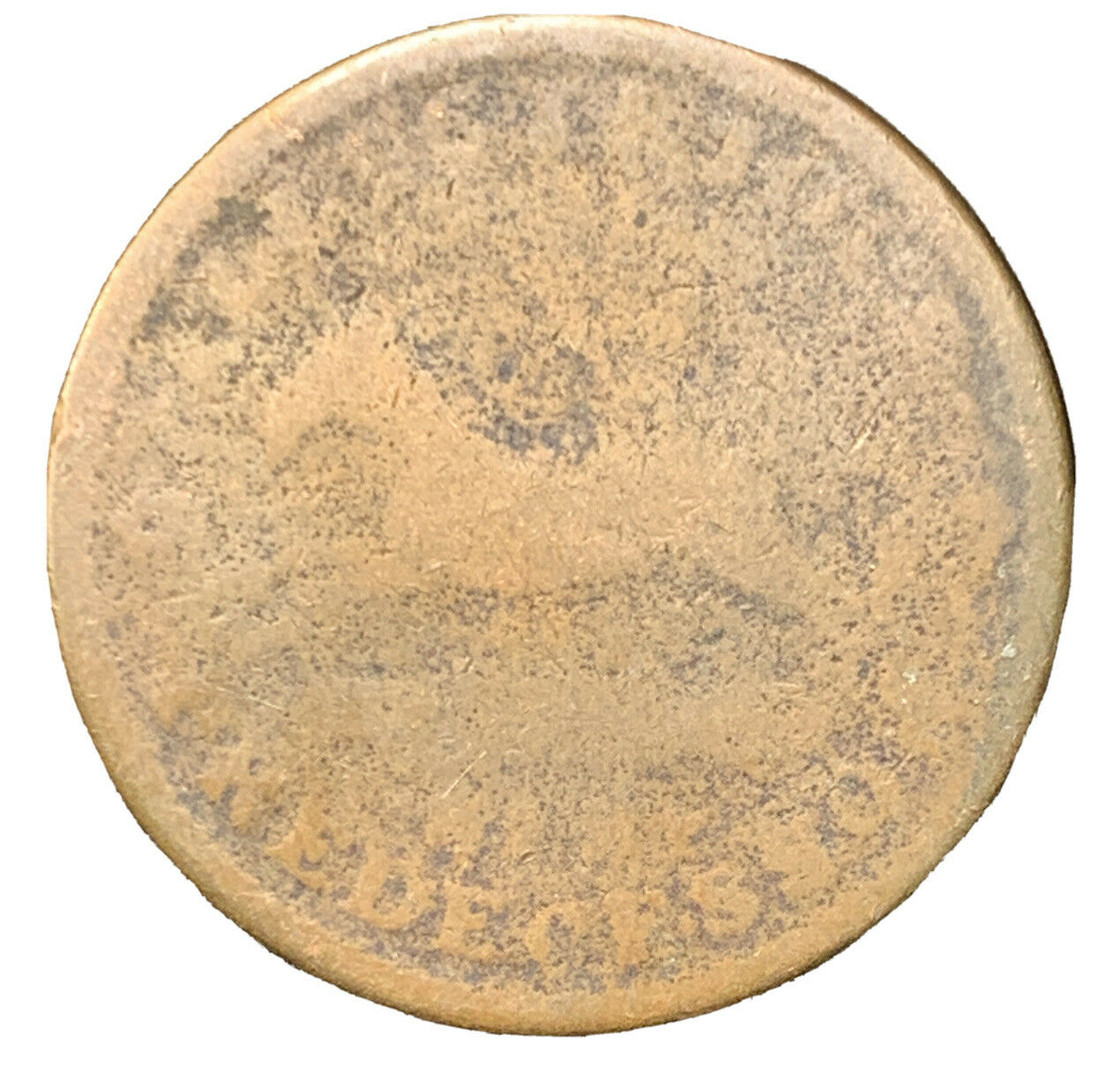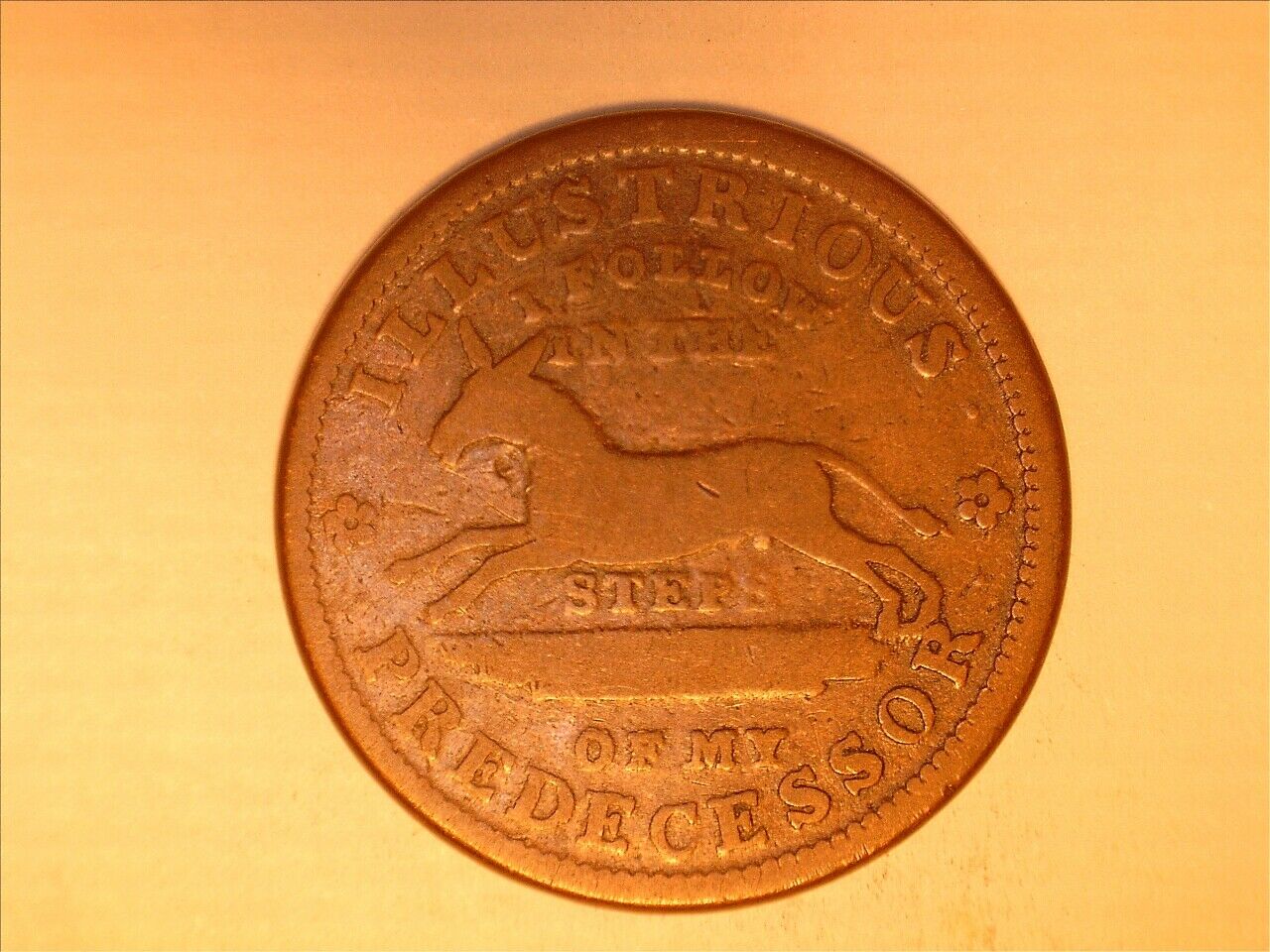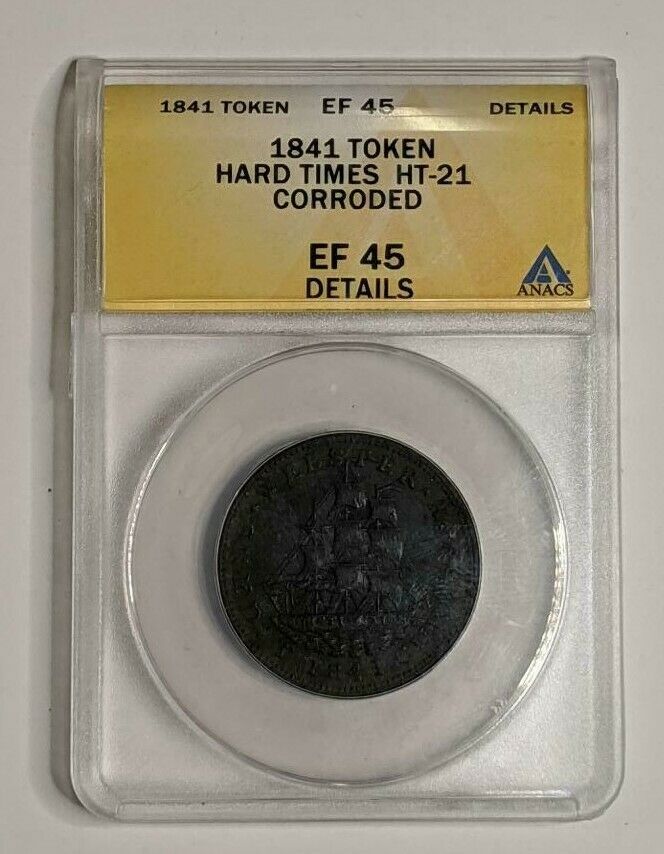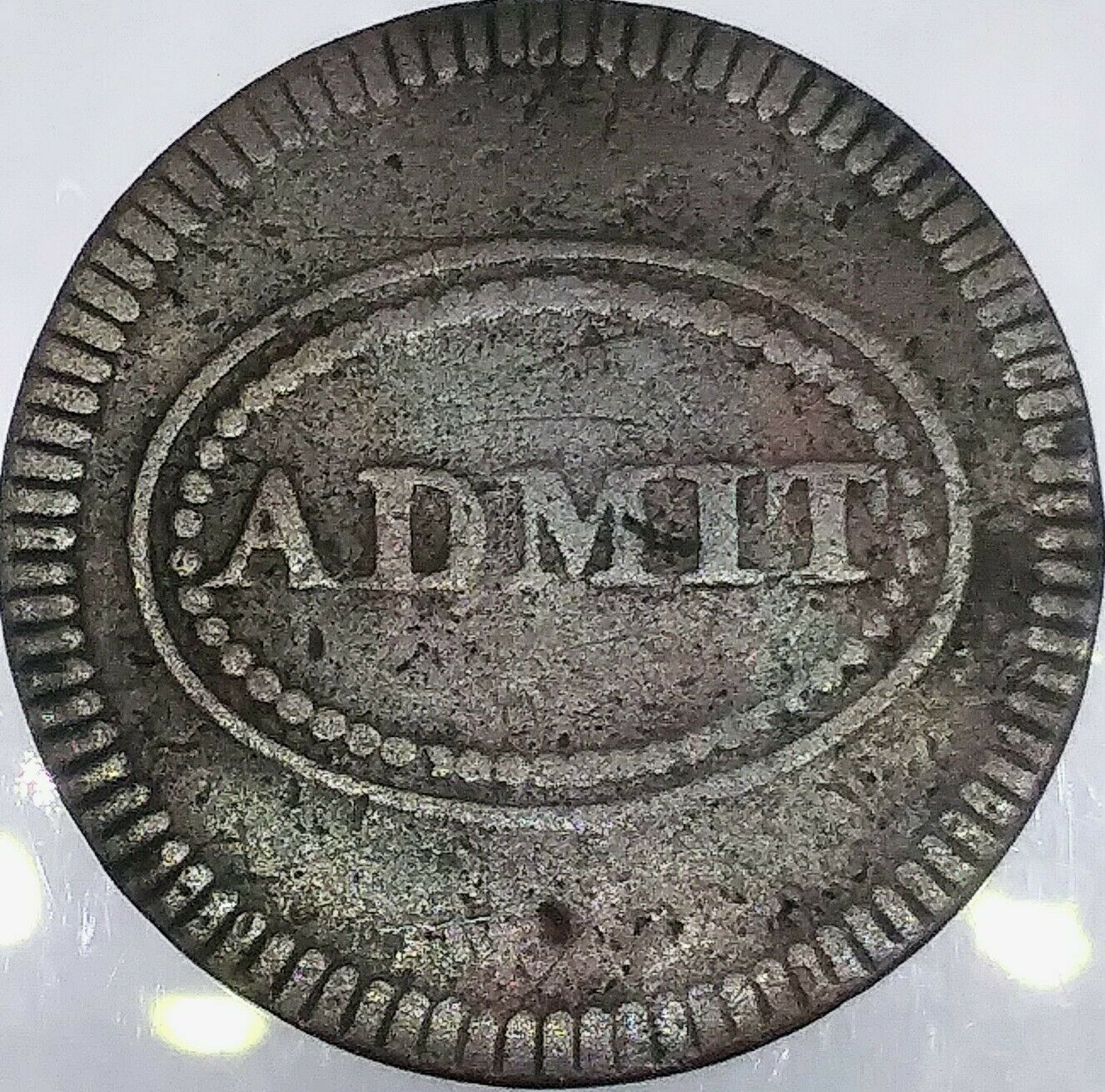-40%
1837 Hard Times Token-Cent Substitute For Shin Plasters-Specie Payments Suspend
$ 52.27
- Description
- Size Guide
Description
You are looking at a Great 1837 Hard Times Token-Cent Substitute For Shin Plasters-Specie Payments SuspendObverse: Eagle -
Substitute For Shin Plasters - 1837
Reverse:
Specie Payments Suspend - May Tenth 1837
High-Grade Coin: Very Fine or better
Where is the quote on the reverse coming from?
The period between 1832-1844 was a turning point in the history of the United States and centered around the controversy over whether public funds should be kept in a privately controlled institution. President Andrew Jackson began the controversy by vetoing a bill in 1832 to continue the existence of the private Bank of the United States past its charter expiration in 1836. An economic depression began in 1837 when even state banks proved to be unworthy places to keep the country’s funds. A whole category of collecting centers around the “Broken Bank Notes” of this period.
Emotions ran high and as the economy worsened, the population hoarded gold and silver. Small transactions became difficult. The government hadn’t the capacity to supply copper coins to substitute for the hoarded money. Hundreds of large cent size tokens began to appear to take the place of small silver coins. These tokens had advertising messages or political statements as their themes.
This piece specifically refers to the worthless privately-printed paper money as a SUBSTITUTE FOR SHIN PLASTERS, as it was "only good for stuffing in your socks (lining your boots with) to keep warm in the winter", with the Phoenix indicating that paper money was only meant to be burnt. The date of "Nov(embe)r 1837" refers to a convention held on November 27, 1837 with representatives from banks in 19 states to try to restore financial order, eventually leading to the reversal of the May 10, 1837 decision of the New York banks to suspend specie payments. The suspension is commemorated on the token's reverse.
Many changes, most for the good, came out of the Hard Times Period. The government took control of the monetary system. Only gold or silver was good for payment for public lands. The government changed the ratio of gold and silver finally bringing gold coins into circulation instead of fodder for the melting pots of Europe. The hundreds of tokens produced became a communication and propaganda device stimulating discussion about topics such as suffrage and slavery. The tokens might have contributed to the change from voting for president by state legislators to the present system of direct vote. The tokens were successful communicators and became the forerunners of campaign buttons and pins.
